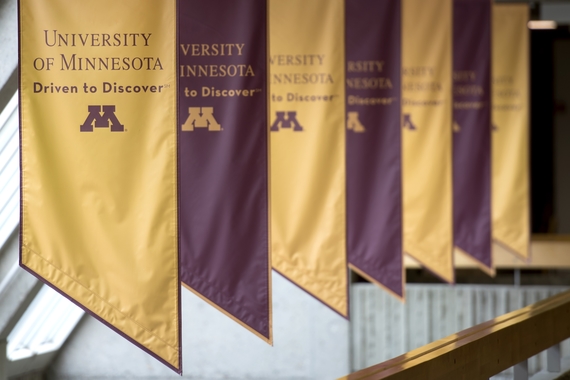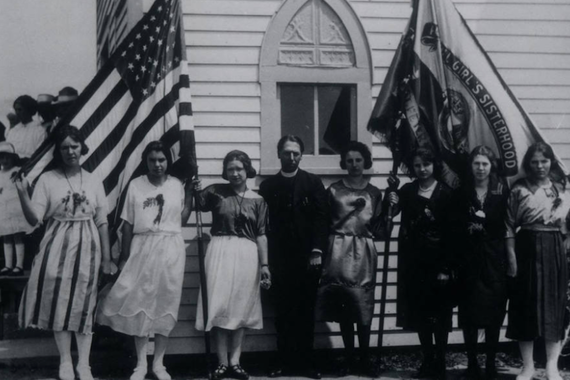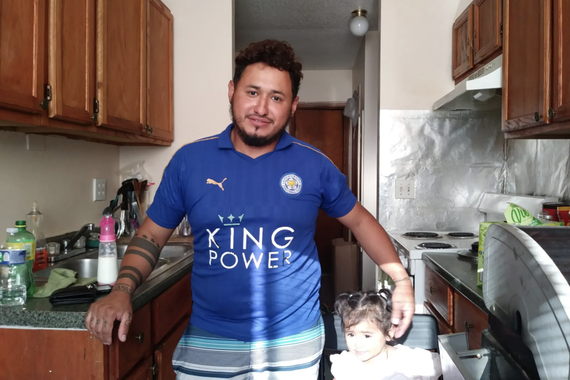Meet Abena Abraham
Abena Abraham, a Minnesotan of Ghanaian and Liberian descent, will join us at the Afromigracy event on Thursday.
Abraham, who arrived in the U.S. at age 4, is co-founded the Black Immigrant Collective, a group that advocaets for immigration and racial justice issues.
The Immigration History Reseach Center (IHRC) interviewed Abraham about her immigraiton history and her experience working with other African immigrants in Minnesota. Here is our conversation:
IHRC: Writing one’s own short bio can be an exercise in record-creation. Please describe yourself in a way that you want the general public to know who you are and what you do.
Abraham: My family migrated to the US when I was 4 years old. My family’s journey and family history are a reflection of the global migration of the Black diaspora. I’m a Minnesotan of Ghanaian and Liberian descent (I swear by Liberian jollof and Ghanaian music).
Moving to the US at a young age has impacted how I view migration, and the importance of community building. I didn’t understand why and how I got here until anti-blackness and anti-immigrant realities started to impact her day-to-day life. Like, turning 16 and being unable to obtain a driver’s license or get financial aid to attend college because of a lack of proper immigration documentation.
Today, my lived experience drive my work as an organizer working around the issues of labor, racial and immigration justice. I’m one of the co-founders of the Black Immigrant Collective, which is group that work towards immigrant and racial justice for all. We are inclusive of African, Caribbean and Afro Latinxs. At my day job, I work as an internal organizer with SEIU Healthcare Minnesota supporting home care workers, and immigrant members across the state to achieve dignity and respect in their work.
IHRC: L.P. Hartley, a British novelist, once said, “The past is a foreign country.” Do you agree with this pronouncement? When looking back to account for details of what happened during your or family’s journeys to this country, does your or family history of migration appear foreign to you?
Abraham: My personal migration story is foreign to me, because of how young I was when I came to this country, but the foreign part is what lead us to leave our home and come here. As I’ve grown older and gotten a better grasp of history and the US involvement in foreign affairs -- why my family had to leave our home and come here has been a whole lot clearer to me. The part of our migration journey that has not been foreign to me is the journey that we took to remain in the country.
IHRC: What specific conditions or circumstances in the present cause you to recall memories of your homeland in unexpected ways?
Abraham: I was so young when I left Liberia, and so I felt like there was a lot of things that I lost or couldn't remember. But, returning back home when I was 20 years old, I realized that I remembered so much than I expected. I remember the house I grew up in, I remembered the way the dusty roads smelled after rainfalls, the smell of the tappers tapping the rubber. Like many others, I was too young to have any concrete memories or any understand of the circumstances that drove most of the Liberians away from the home.
IHRC: If you could take one book -- or one enterprise story -- with you to 2076, the year of the United States Tricentennial, the dawn of the fourth century of the founding of the United States, what would be your choice? The book, of course, does not have to be written in English.
Abraham: Homegoing by Yaa Gyasi. I think that we often overlook the richness of our (I’m taking specifically about West Africans) history. Coming to the US at a young age and thinking that assimilation was the only way to accepted into society really affected my world view and how in touch with my culture I was at the time. I wanted nothing to do with anything that would make me less American. Reading this book really changed my thought process -- it made me to realized that even though you’re in a place outside of home you shouldn’t ever lose sight of who you are and the history of your culture. I learned that the key wasn’t to assimilate, but to rather acculturate because both my being American & being an African is an important part of who I am. It was amazing to me to see so many Ghanaian names written in print, including my own. Our history is deep and we should continue to tell our stories through the many generations that will come after us.
IHRC: Let’s say you have been given an opportunity to contribute to a time capsule project to offer future historians raw materials from the past (also known as primary sources) so that they can engage in the craft of historical research and writing about Afromigrancy. The container of artifacts and records will remain sealed and stored safely for 100 years (until 2119) in the basement of the Elmer Andersen Library under the stewardship of the Immigration History Research Center Archives. Choose five items you would donate from your personal, family, and community collections to this project.
Abraham: I would donate:
- A passport
- Kente cloth
- Past immigration applications
- My first pair of winter gear
- Copy of ticket back home/photos from my first visit back home.


